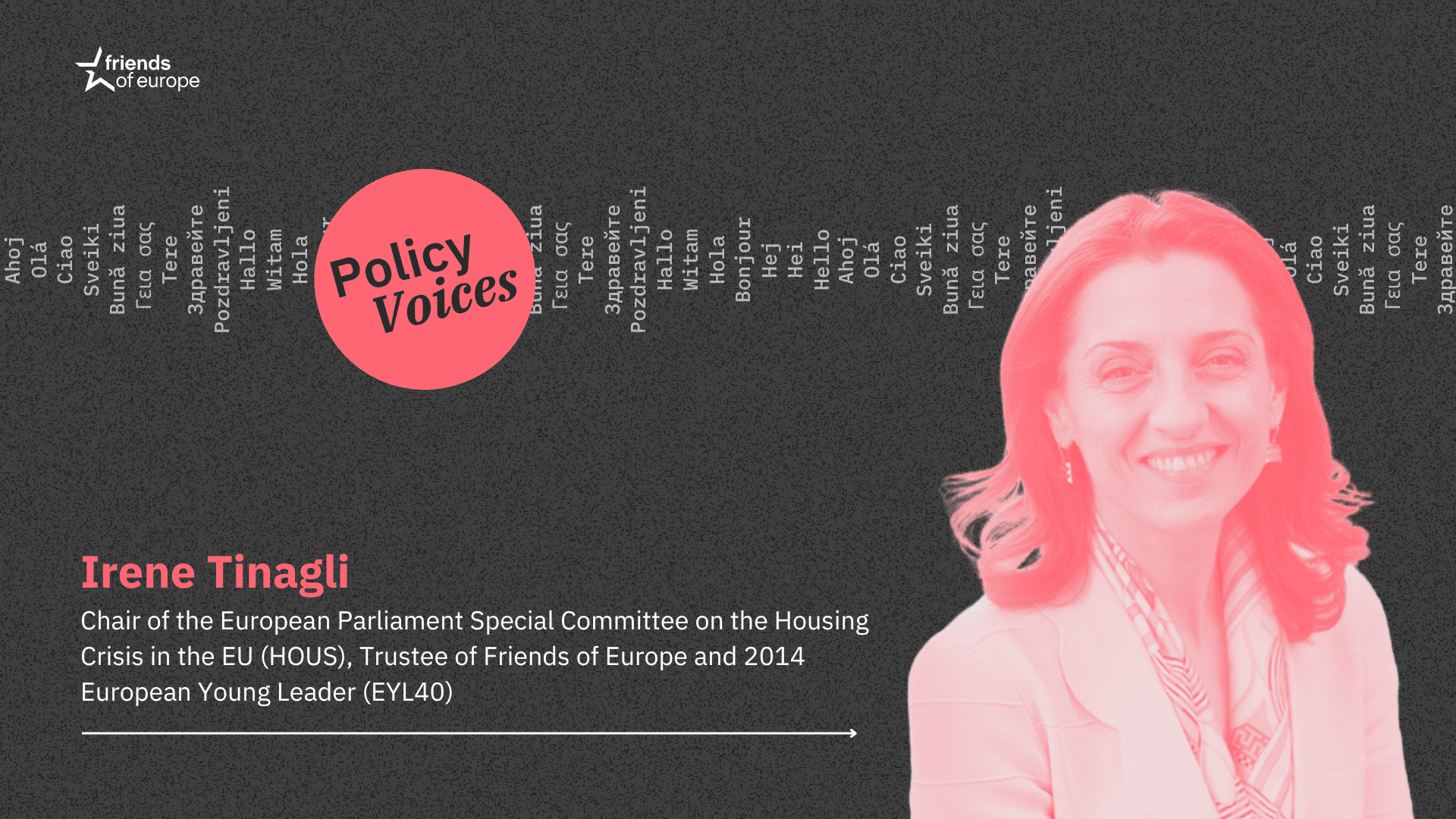📅 Context
The video titled "Policy Voices | Addressing the housing crisis: local solutions for a European problem?" published by Friends of Europe discusses the growing housing crisis in Europe. This organization is known for promoting dialogue on key policy issues affecting the continent. The episode features Catarina Vila Nova interviewing Irene Tinagli, an economist and Member of the European Parliament, who chairs the Special Committee on the Housing Crisis in the EU.
🏠 Overview of the Housing Crisis
The housing crisis is characterized by a significant imbalance between demand and supply, particularly affecting lower and middle-income groups. This longstanding issue has escalated, prompting the European Commission to establish a Housing Task Force and the European Parliament to form a special committee to address the crisis.
📈 Key Factors Contributing to the Crisis
Factors exacerbating the housing crisis include the rise of platforms like Airbnb, the influx of digital nomads, and policies such as golden visas. Such economic strategies, initially designed to stimulate growth, have inadvertently led to increased housing prices, making affordable options scarce for local residents.
🏙️ Impact on Cities
Major cities across Europe have been significantly affected, with rising housing prices creating a pressing need for solutions. While some smaller towns experience a decline in prices due to population outflow, the trend in larger urban areas highlights a widespread issue, particularly following the COVID-19 pandemic, which intensified the crisis.
🏛️ Policy Responses and Challenges
The conversation highlights the need for effective policy interventions to combat the housing crisis. While some cities have implemented restrictions on short-term rentals, the effectiveness of such measures varies. For instance, Barcelona has seen a slight decrease in rental prices due to newly enacted laws.
🌍 The Role of the European Union
The European Union has limited competencies in housing but can influence related areas such as market regulations and housing finance. Transparency regulations for short-term rental platforms have been introduced, aiding in data collection and analysis for better policymaking.
💡 Recommendations for Future Policies
The discussion emphasizes the importance of rethinking welfare policies to incorporate housing as a fundamental component. Sustainable housing solutions should focus on providing affordable options for vulnerable populations, ensuring they have access to essential needs like healthcare and education.
💬 Conclusion
The housing crisis in Europe presents a complex challenge that requires coordinated efforts across various levels of government and sectors. The episode serves as a clarion call for policymakers to address the multifaceted dimensions of this pressing issue, ensuring that housing is recognized as a critical aspect of social welfare and economic stability.
